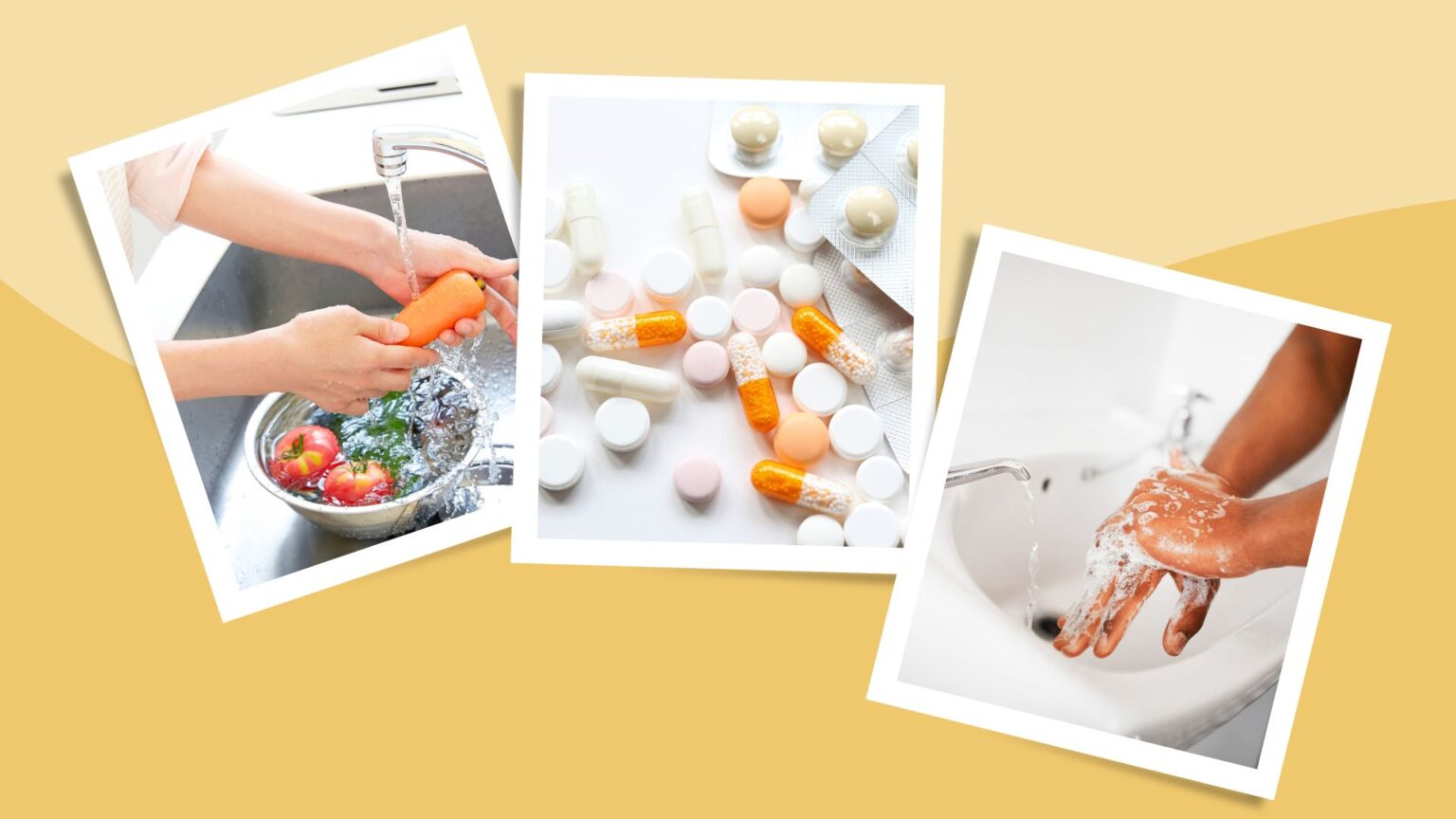Depending on the type of E. coli infection you have, appropriate medications can vary. Some infections may resolve on their own. Antibiotics may be prescribed for some but cause complications for others.
Urinary Tract Infections
A urinary tract infection (UTI) can occur when some strains of E. coli enter the urinary system. This is the most common infection caused by E. coli.
Doctors typically treat UTIs with a range of antibiotics. Which antibiotic they prescribe depends on the type of infection and patient characteristics, says Mahesh Polavarapu, MD, medical director of emergency medicine at NewYork-Presbyterian Westchester in New York. UTIs are classified as uncomplicated if they are mild and occur in otherwise healthy women and as complicated UTIs if they occur in males, children, pregnant people, and people with a weakened immune system, he says.
“Uncomplicated UTIs are typically treated with oral antibiotics and for a short period of time,” Dr. Polavarapu says. “Complicated UTIs are treated for a longer period of time and may require IV antibiotics.”
Some antibiotics used to treat uncomplicated E. coli–associated UTIs include:
- sulfamethoxazole and trimethoprim (Bactrim, Bactrim DS)
- fosfomycin (Monurol)
- nitrofurantoin (Furadantin, Macrobid, Macrodantin)
- cephalexin (Biocef, Daxbia, Keflex, Keftab)
A three-day course of antibiotics can successfully treat most UTIs, with symptoms subsiding after a few doses.
Some strains of E. coli, called extended-spectrum beta-lactamase (ESBL) E. coli, are resistant to many antibiotic treatments. In these cases, or those coupled with a kidney infection, your doctor may prescribe a fluoroquinolone. Medications in this class include:
- ciprofloxacin (Cipro)
- levofloxacin (Levaquin)
Ask your doctor about the potential side effects of fluoroquinolones. “The one that we ensure patients are aware of is the risk of tendinopathy, or tendon pain or reduced function without rupture, and tendon rupture,” Polavarapu says. “The more common side effects are gastrointestinal, like nausea, vomiting, diarrhea, and dyspepsia [indigestion].”
In severe UTI cases, you may be prescribed:
- ceftriaxone (Ceftrisol Plus, Rocephin)
- piperacillin-tazobactam (Zosyn)
- carbapenems
E. Coli–Related Traveler’s Diarrhea
Traveler’s diarrhea often occurs when an individual visits another country and is exposed to bacteria (most often a strain of E. coli called enterotoxigenic E. coli, or ETEC) via food or water with which their body has little to no familiarity.
In addition to hydration, treatment may include antidiarrheal drugs such as loperamide (Imodium). This medication is not advised for people who have a fever, have bloody stools, or are age 18 or younger.
A healthcare professional may prescribe antibiotics only if you have three or more loose stools in an eight-hour period or severe symptoms, including fever, dehydration, or blood or mucus in the stools. Medications may include:
- ciprofloxacin (Cipro)
- levofloxacin (Levaquin)
- azithromycin (Zithromax, Zmax)
- rifaximin (Xifaxan)
Intestinal E. Coli Infections
Some intestinal E. coli infections, such as those caused by Shiga toxin-producing E. coli, or STEC, do not require medication. In fact, treating these cases with antibiotics may increase your risk of developing hemolytic uremic syndrome (HUS).
It’s also important not to treat STEC infections with over-the-counter antidiarrheal medication, which also can increase your risk of developing HUS. Antidiarrheal medication slows down the digestive system and may keep toxins in your body.
Hemolytic Uremic Syndrome
When HUS occurs, toxins destroy red blood cells, disrupting the kidneys’ filtering system and possibly causing kidney failure. HUS affects 5 to 15 percent of people with diarrhea from an E. coli infection, primarily children ages 5 and younger and adults ages 60 or older.
HUS requires prompt medical treatment, which may include fluid replacement, blood or platelet transfusion, and kidney dialysis.
Most people with HUS who receive appropriate, timely treatment recover fully, especially children. Some do have lasting kidney damage. If that occurs, a healthcare professional may recommend medication to lower blood pressure and help prevent kidney damage.
When there are complications, HUS may be treated with eculizumab (Soliris). This helps prevent further blood vessel damage, but it requires a vaccination to prevent meningitis, a potential side effect.
Neonatal Meningitis
E. coli is the second-leading cause of neonatal bacterial meningitis, behind group B streptococcus (GBS). Neonatal bacterial meningitis occurs in just 0.02 percent of full-term pregnancies. It does require treatment, with a mortality rate of 5 to 20 percent after treatment.
If neonatal meningitis is suspected, a healthcare professional will draw blood and perform a spinal tap (also called a lumbar puncture) to test spinal fluid for E. coli bacteria. If bacterial meningitis is confirmed, treatment includes fluids, rest, and antibiotics.
Medication may include:
- ampicillin (Principen)
- cefotaxime (Claforan)
- gentamicin (Garamycin)
Other Conditions
E. coli may result in other infections that require medication. These include:
- Bloodstream Infections These may occur when E. coli enters the bloodstream. In addition to IV therapy, medication to treat these infections may include cefepime and carbapenem.
- Sepsis An E. coli infection can progress to this extreme bodily response, especially for people with chronic health conditions or those younger than 1 year old or age 65 or older. It requires immediate medical attention, which can include antibiotics, in addition to oxygen and IV fluids.
- Abdominal Infections E. coli infections are a leading cause of peritonitis, the inflammation of the abdominal cavity. Medications used to treat these include ampicillin (Principen), cefotaxime (Claforan), ceftriaxone (Rocephin), and ertapenem (Invanz).
- Prostate Infections Bacterial prostatitis, or an inflamed prostate, can be treated with antibiotics. Typical duration of antibiotic treatment is four to six weeks.
- Pelvic Inflammatory Disease (PID) Typically occurring in women under age 35, PID often is a complication of a sexually transmitted infection (STI) but can be the result of an E. coli infection. It typically is treated with antibiotics.
Read the full article here




